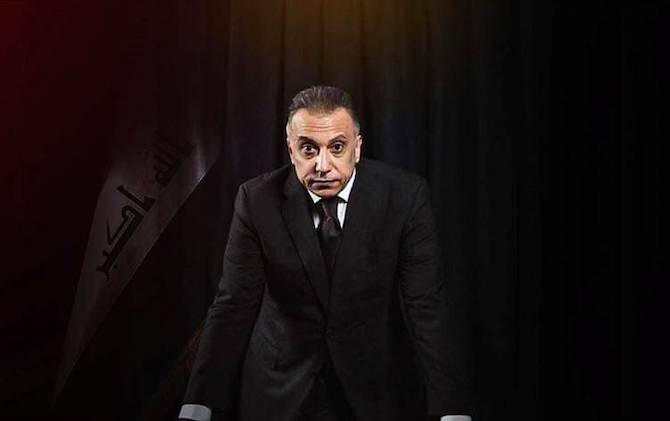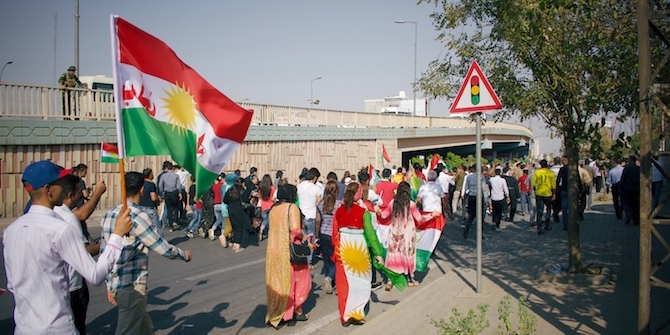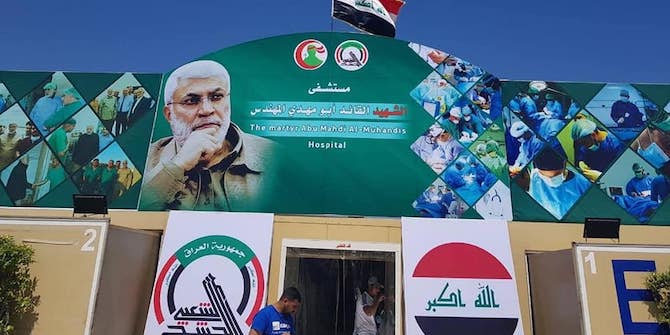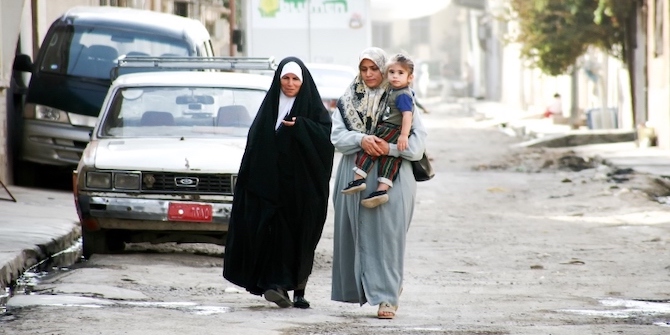by Omar al-Nidawi

The formation of Iraq’s new government under Mustafa al-Kadhimi ended months of deadlock since his predecessor resigned in November, buying Iraq and its political class time to mitigate multiple crises in a country that’s been in free fall. But it’s hard to determine the direction in which the former journalist-turned-spymaster will steer Iraq as prime minister, and even harder to predict how far he’ll be able to go.
Once Parliament approved Kadhimi’s incomplete government, papers rushed to determine whether he was Washington’s man or Tehran’s, and analysts looked for meaning in every gesture he made. Early actions are useful indicators of intentions, but viewed alone, initial assessments can mislead, and taking a politician’s word at face value is often unwise.
Other factors deserve attention. A politician’s background may guide the direction he intends to take, but the prevailing conditions will decide how far, if at all, he’ll advance in that direction.
Kadhimi is rather unique as his writings offer a record of his views on militias, federalism and relations with the US when he wasn’t in power. But there is no guarantee that Kadhimi the politician will be the same as Kadhimi the journalist. He might uphold his principles, pursue reforms, restrain militias and advance human rights and Iraq’s sovereignty. Alternatively, Kadhimi’s resolve might waver in the face of entrenched militia and partisan interest protected by the ethno-sectarian quota system. There’s also potential that the weakness of his primary opponents may tempt Kadhimi to pursue reforms in an aggressive manner, exceeding the tolerance of the political class and placing him on a path towards either authoritarianism or overthrow. The path will depend largely on the effect of time and the interaction of other actors.
Specific conditions led to the apparent de-escalation between Iran and the US in Iraq and Iran’s acceptance of Kadhimi. Iran’s considerations may include the continuing shock from Qasim Soleimani’s assassination, fear of a painful armed conflict that could benefit Donald Trump, the desire to sustain vital trade with Iraq and fear of chaos in Iraq.
But these conditions are temporary, reflecting tactical adjustments, not altered strategic postures. By next winter, there could be a new American president, potentially ending Trump’s ‘maximum pressure’ campaign, while a few calm months in Baghdad could reduce Tehran’s tolerance for an administration trying to curb Iran’s influence.
Iran’s attitude toward Kadhimi could turn combative when the threat of war and economic outlook change. This suggests that Kadhimi may have a shorter window for action than the two years left in this election cycle. The pressure of time may push Kadhimi to take shortcuts to achieve key stated objectives, like establishing a state monopoly over arms. Meanwhile, Kadhimi’s early moves against militias and hands-on style may also encourage other stakeholders to push him to do more and potentially overreach. An erratic White House that has often viewed Iraq through the prism of conflict with Iran may use the June strategic dialogue to insist that Kadhimi accelerate measures against pro-Iran militias to give Trump foreign policy points ahead of the elections.
Another source of pressure is the relationship between Kadhimi and an Iraqi public that is sick of Iranian interference, has been losing faith in democracy and is exhibiting nostalgia for authoritarianism and ‘strong man’ rule. Kadhimi has been trying to strengthen the perception of his detachment from the political class which he held collectively responsible for Iraq’s troubles. Although Kadhimi recognises that his government is dependent on the goodwill of the political parties, it’s imprudent to rule out the possibility that Kadhimi may be tempted to test the limits of his power and increasingly chip away at the militias’ freedom of action, assessing that every such move wins him more popular support.
There are also political actors, especially in Sunni circles, who seem eager to see a strong leader crack down on Shi’a militias, not for altruistic reasons but because they resent Shi’a Islamists for relegating them to the role of junior partner in a country they once ruled. We see a clear example in the words of Jamal al-Karbouli, the head of al-Hal party, who took Kadhimi’s first op-ed since taking office as a statement of interest in suppressing Iran’s allies, and egged him on to ‘do it, Kadhimi!’
Another hard to assess factor is Kadhimi’s own sense of mission. Could initial success in reshaping the country’s security command structure encourage bolder action while conditions allow it? After all, placing the Interior Ministry under a respected general after years of Badr Organisation control may present an opportunity to retake the streets from the militias, whether or not that was Kadhimi’s goal.
Whether the new prime minister was Iran’s man or Washington’s man is a question of limited value. His predecessors left legacies that little resembled the first impressions and assessments formed when they took the helm, and were shaped more by the environment in which they found themselves than by what their promoters had in mind. Surely, the fact that an American analyst in 2006 suggested Nouri al-Maliki for the premiership because he was a ‘clean’ and ‘tough guy’ who could say no to Iran did not make Maliki ‘Washington’s man.’
When it comes to Kadhimi, it is indeed wise to temper our expectations about what he can achieve to address chronic structural problems that need huge resources and time to mitigate, like creating real jobs or providing decent electricity, healthcare and education. But observers shouldn’t rule out the possibility that Kadhimi may, for better or worse, pursue radical change in the political landscape.
Much will depend on how Kadhimi will reshape his environment over the next six months to hedge against unpredictable US–Iran relations and before pro-Iran militias recover from the shock and loss of cohesion of the January assassinations. In turn, what he can do will depend on how good, or not, he was as chief of intelligence and how much knowledge he acquired about his grudging partners.







3 Comments